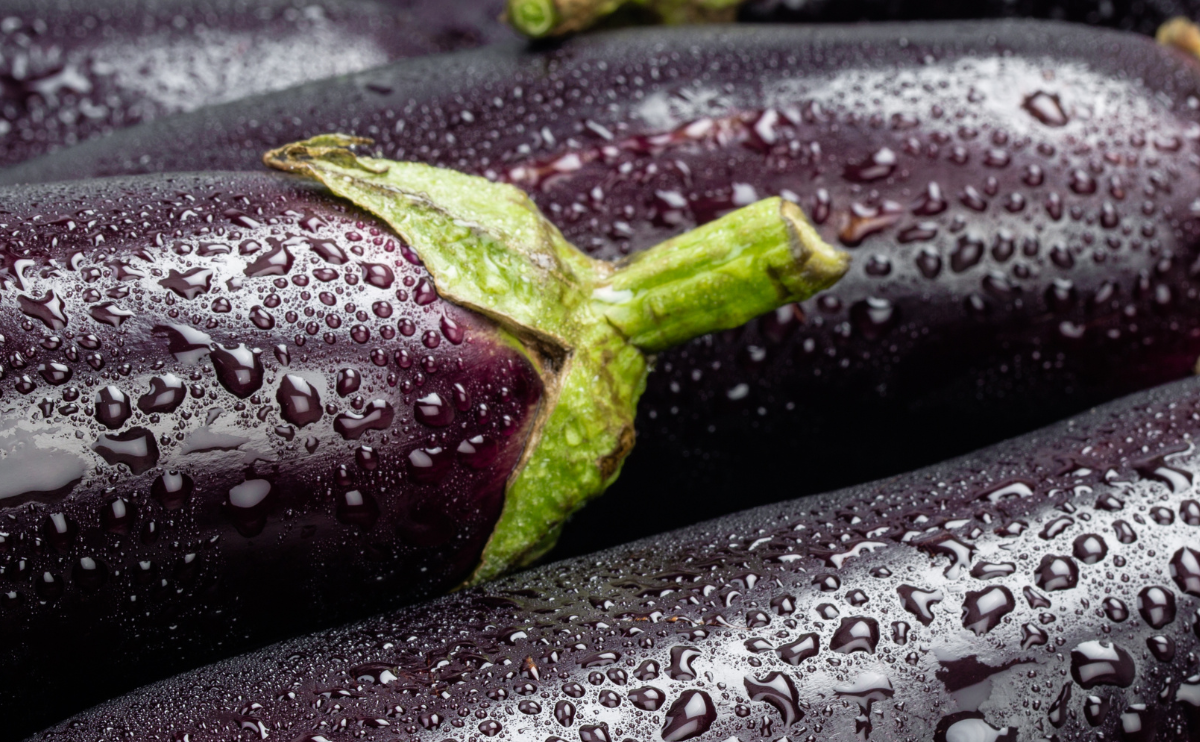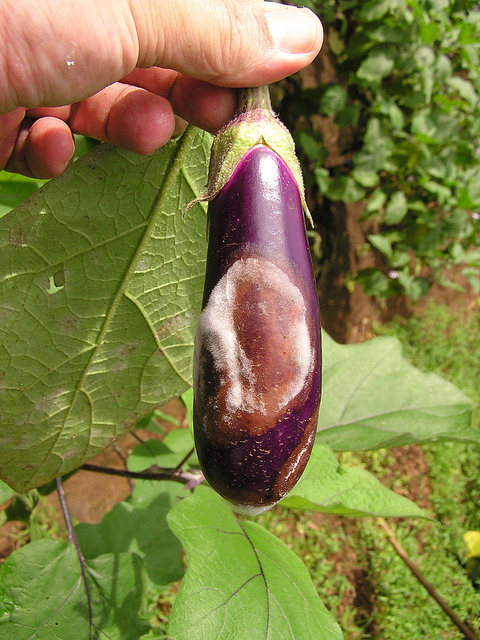Eggplant (Solanum melongena) is easy to grow, and some varieties are so beautiful they can be used as ornamentals. The flowers come in either purple or white with five lobes, and they give way to the beautiful eggplants that are typically a deep purple color and can come in various sizes and shapes. Eggplant is a fast-growing, warm-season vegetable that should be planted in the mid- to late spring.

| Common Name | Eggplant |
| Botanical Name | Solanum melongena |
| Family | Solanaceae |
| Plant Type | Perennial, vegetable |
| Size | 2–4 ft. tall, 1–3 ft. wide |
| Sun Exposure | Full sun |
| Soil Type | Loamy, well-drained |
| Soil pH | Acidic, neutral, alkaline (5.5 to 7.5) |
| Bloom Time | Summer |
| Hardiness Zones | 9b–12a (USDA) |
| Native Area | Asia |

When to Plant?
This will be determined by your planting zone. There is a final frost date for each area. As a result, you can plan your gardening activities around this date. Check our Frost Dates Across North America: First & Last Frost Dates Chart. However, the date will not be the same for every plant.
How to Plant
Eggplants are best grown indoors and then transplanted into the garden. Sow eggplant indoors 6 – 8 weeks before planting in the garden. Transplant the seedlings into the garden no earlier than 2 – 3 weeks after the last spring frost.
Sow eggplant seeds in individual pots or containers separately from the other plants.
Sow the seeds from 1/4 ” to 1/2″ deep and 4″ to 5″ apart.
Eggplant seeds should germinate in about 7 – 10 days.
Seedlings started indoors need at least 10 hours of light each day. Use grow lights or fluorescent lights as needed.
Before replanting, place black plastic on the beds to pre-warm the soil.

Eggplants grow best in well-drained, organic-rich soil. Eggplants are best served with a soil pH of 5.5 to 6.8. Transplant the eggplants into the garden 2 – 3 weeks after the last spring frost.
A small cage or a stake should be installed to support the plant as it grows. It will prevent the eggplant from falling over when it becomes heavy.
Place the eggplants 24 to 36 inches apart. And place the rows at a distance of 24 to 36 inches.
Do not overwater or allow the soil to dry out entirely since eggplants require evenly moist soil for better growth. Give your plants at least 1 inch of water every week. To retain soil moisture and keep weeds out of your plants, mulch the eggplants after the soil has warmed up to 70°F.
How to Cultivate
Water – Eggplant needs at least 1 inch of water every week. If the eggplant begins to wilt or if the leaves begin to curl, this is a sign that the plant needs more water. The best time to water your eggplants is early morning or evening when temperatures are cool, and evaporation rates are relatively low.
Soil – 5.5 to 6.8 pH, well-drained, high fertility
Spacing – seeds – 4″ – 5″
Seedling – 24″ – 36″
Seed life: 4 years
Sun: Full sun
Germination: 7 – 10 days, 60°F – 95°F
Day to Harvest: 100 – 150 days
Frost tolerant: cannot tolerate frost
How to Harvest
The crop can be harvested after about 100 – 150 days from sowing. You can start harvesting when the fruits are firm, full of color, and shiny. Overripe or unripe eggplant fruits will taste bitter. You can check the fruit’s maturity by pressing on one side of the fruit with the pad of your thumb. Use a sharp knife or a pruner to cut the eggplants from the stem
Hydroponics
Germination: Soak eggplant seeds in water for 6-8 hours before sowing. Place the soaked seeds in a small pot filled with a germination medium like rockwool or coco coir. Water the seeds regularly and keep the pot in a warm and well-lit area. The seeds should germinate in about 7-14 days.
pH range: The pH range for hydroponic eggplant should be between 5.8-6.5. Maintaining the correct pH level is important for the plants to absorb the necessary nutrients.
EC: The electrical conductivity (EC) level should be maintained at around 2.0-3.0 mS/cm for hydroponic eggplant. This helps to ensure that the plants receive the right amount of nutrients.
PPM: The parts per million (PPM) for hydroponic eggplant should be around 1400-2100 ppm. This measures the concentration of nutrients in the water solution.
Humidity: The humidity level should be maintained at around 50-70% for eggplant to grow properly. This can be achieved by using a humidifier or by placing a tray of water near the plants.
Light hours: Eggplant requires about 12-16 hours of light per day for optimal growth. You can use artificial lights like LED grow lights to provide the necessary light if natural light is not available.
Temperature air: The air temperature should be maintained at around 22-27°C (72-81°F) during the day and around 20-23°C (68-73°F) at night for eggplant to grow well.
Temperature water: The water temperature should be maintained at around 20-25°C (68-77°F) for hydroponic eggplant. This helps to ensure that the plants absorb the necessary nutrients.
Overall, growing eggplant hydroponically can be a rewarding experience, and following these guidelines can help you grow healthy and vibrant plants.



